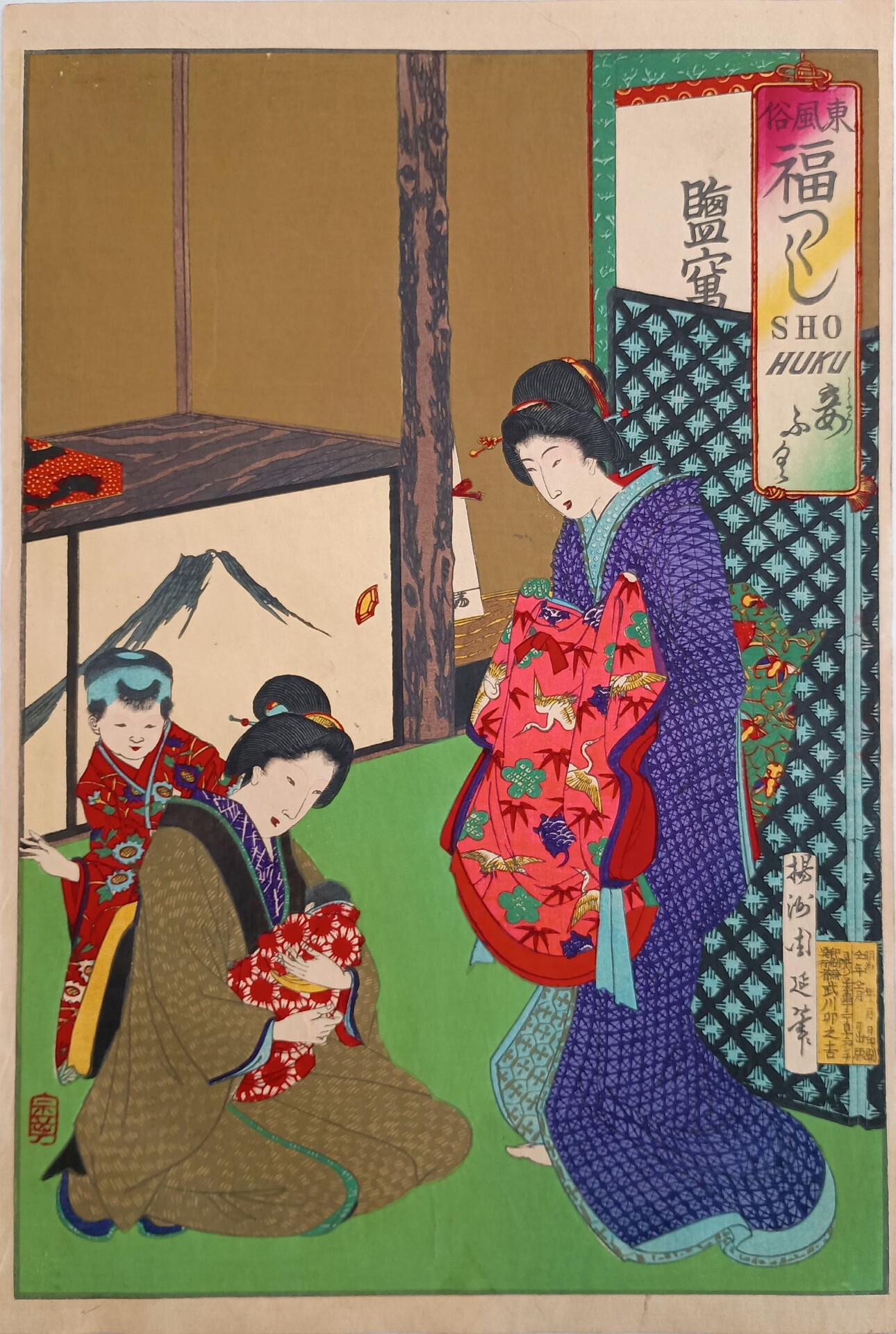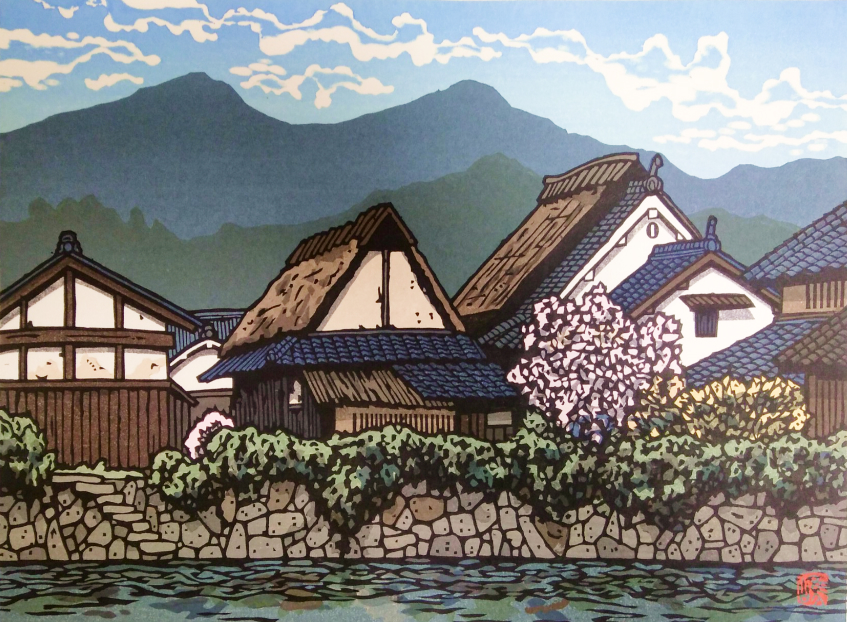


Color intensity is well-preserved with vibrant hues. Slight discoloration on the background. Minimal stains, no major creases or tears. Some wear on the edges. Overall, very good condition. Unfortunately it has been completely trimmed along the edges and backed on another paper.
Illegitimate: born to a mistress.
(Shōfuku, 妾腹).
This print comes from a series produced between 1887 and 1890, illustrating words containing the syllable "fuku" (or huku), often associated with blessings and good fortune.
The series beautifully depicts women, children, and families engaging in daily life, traditions, and festivities during the Meiji era.
The term shōfuku (妾腹) in this print probably refers to a child born to a concubine, highlighting historical social structures. It was used in contrast with the one referring to a child born
to the official wife (seishitsu-bara, 正室腹).
The print illustrates a moment of care within a household, possibly reflecting the status and acceptance of concubine-born children in Meiji society.
Color intensity is well-preserved with vibrant hues. Slight discoloration on the background. Minimal stains, no major creases or tears. Some wear on the edges. Overall, very good condition. Unfortunately it has been completely trimmed along the edges and backed on another paper.
| Price | USD$ 154.00 |
|---|---|
| Series | Customs of the East / Customs of the Capital: a collection of the word "Fuku". (Azuma fūzoku. Fukutsukushi, 東風俗 福つくし). |
| Author | Yōshū Chikanobu (揚州周延). |
| Size | Ōban (大判) 35,7cm x 23,9cm (14,05 x 9,40 inches). |
| Publisher | Takekawa Unokichi (武川卯之吉). |
| Number | 16/30 |
| Genre | Bijin-ga (美人画), kaika-e (開花絵). |
| Period | C. 1899 ~ 1890. |
| Trimmed | Yes |
| Backed | Yes |
| Code | YSK01004 |
